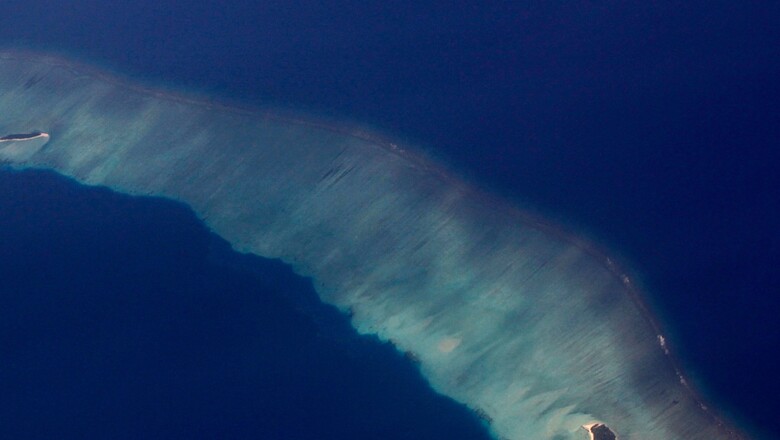
views
For the past week, the talks on the streets of Male have centered around the diplomatic rift with India and the potential fallout from the remarks made by three Maldivian junior ministers against Prime Minister Narendra Modi. The idyllic tourist destination faces the threat of an Indian tourist boycott, jeopardising the main source of its economy.
Last year, Indian tourists were the largest group by nationality to visit the Maldives, contributing significantly to its tourism-driven economy. The suspended ministers stirred controversy by labeling PM Modi a “clown,” and a “puppet of Israel” on social media over his posts on India’s Lakshadweep islands. Although the Maldivian foreign ministry clarified that these comments were personal and did not represent the government’s stance, concerns persist.
The Maldives, a small island nation with a population of 520,000 compared to India’s 1.4 billion, heavily relies on its giant neighbour for essentials like food, infrastructure, and technological advancements. Residents of Malé express apprehension that the diplomatic spat could strain relations between the two countries.
‘We were disappointed’
The disappointment is palpable among locals, not only regarding the potential boycott by India but also directed at their government for what is perceived as a lapse in judgment. “We were disappointed with the boycott calls [from India]. But we were more disappointed with our government. There was a lack of good judgement on the part of our officials”, Mariyam Eem Shafeeg, a student at the Maldivian National University told the BBC.
During this ongoing row, cultural ties between the Maldives and India have come to the forefront, with residents growing up immersed in Bollywood films and dramas. Shafeeg, aligned with the Maldivian Democratic Party known for its “India first” policy, points out that Male also “depends on India for food, education and healthcare.”
The diplomatic rift poses economic risks and raises concerns about the complex web of cultural, economic, and geopolitical ties that bind these two nations in the vast expanse of the Indian Ocean. India is a strategic ally, with military personnel and helicopters stationed on the islands. However, relations have deteriorated since the arrival of Muizzu, who is considered to be pro-Chinese, was elected in November.
Lo and behold, this controversy began a few days before the start of Muizzu’s China visit. Chinese tourists once held a dominant position among visitors to the Maldives before the onset of the Covid-19 pandemic. However, tour operators note a substantial decline in numbers, possibly attributed to elevated ticket prices and reduced flight availability. Addressing the issue during his visit, Muizzu stressed the importance of redoubling efforts to restore China to its former status as the Maldives’ primary tourism market.
‘Should have been sacked straightaway’
Despite his pro-China stance, several Maldivians believe that their President must take tougher action against the erring ministers and maintain good relations with India. “The ministers should have been sacked straightaway. We are worried now about India’s reaction as we depend on our neighbour for most of our food items,” Aik Ahmed Easa, a lawyer affiliated with the opposition told the BBC.
Adding to the worry of Maldivians is the support of Indian businesses to “boycott Maldives movement.” Ticket-booking site EaseMyTrip said it has suspended all flight bookings to the country. One of the biggest trade bodies in India has asked its members to stop doing business with the Maldives until an apology is issued. These reactions have left the Maldives Association of Tour and Travel Operators, or MATATO, worried. On Tuesday, MATATO called on EaseMyTrip to disregard the “regrettable” comments, and said they did not reflect the sentiments of Maldivians.
“In expressing our heartfelt gratitude for the enduring friendship and partnership that defines the relationship between the Maldives and India, we want you to know the bonds connecting our nations transcend politics. We consider our Indian counterparts… as cherished brothers and sisters,” the statement added. “Tourism stands as the lifeblood of the Maldives, contributing over two-thirds of our GDP and providing livelihoods to approximately 44,000 Maldivians who work in the sector. The potential adverse impact on tourism holds the power to unleash severe repercussions on our economy,” it added.



















Comments
0 comment